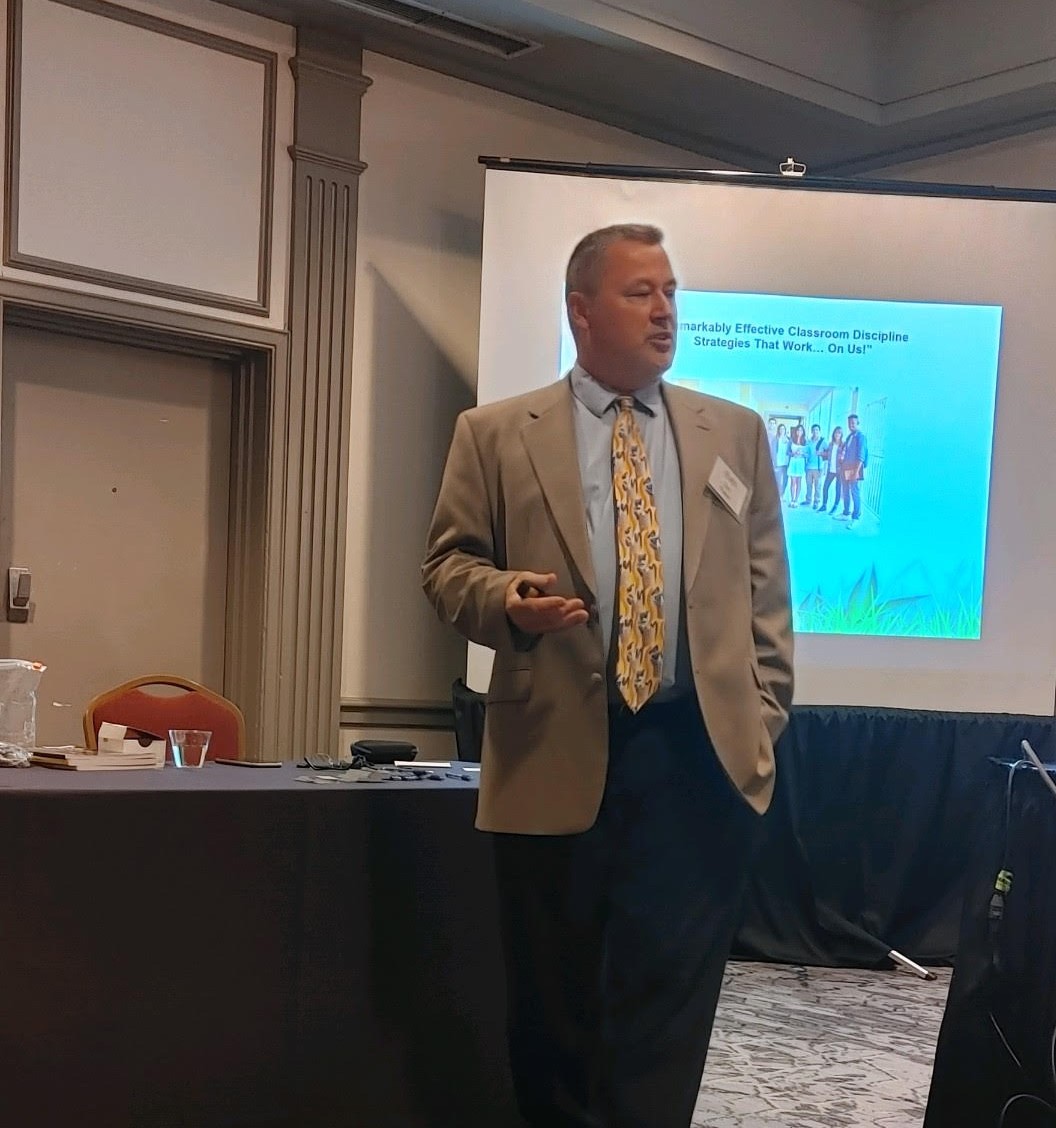

Tom Faber
National Trainer
Tom’s philosophy about teaching is simple. When asking an educator what they teach, the correct question is “who” they teach. Teachers build positive working relationships with students, which enables them to motivate, and build a student’s understanding of math, science, reading, history, or whatever the topic at hand. Teaching in a classroom as an educator is teaching students, real, live human beings. He agrees with Madeline Hunter when she said, “Kids don’t care how much you know until they know how much you care!” Many think she was being too “warm and fuzzy” but what she meant was you are not going to reach some kids academically until you first reach them on the “human to human” level.
Sometimes the subject matter in our classrooms can’t compete with the “drama” in their lives. The main ingredient missing in a lot of our classrooms today is a “connection with kids.” Tom believes that research is clear, when students know you value them as a human being, not just another student; they will work harder for you and challenge you less.
Tom believes teachers need to be given research based, proven, practical strategies and applications that teachers can start implementing immediately – without throwing anything out that is working in their classroom. Tom believes educators have the toughest job in America as they are asked every day to wear many different hats – mom, dad, nurse, counselor, teacher, advisor, judge, jury, lawyer – just to name a few.
Tom understands that students come into our classrooms and schools with different backgrounds and cultures and their cognitive abilities, assets and experiences are just as wide ranging. Sometimes the only thing students have in common is their age! The “one size fits all” approach does not work anymore.
Tom also knows the biggest unchallenged assumption by many today (especially politicians) about education is that kids are coming to school willing and ready to learn. As educators, we know this is not the case. We have a generation of kids coming to our schools basically un-socialized. Many students are learning behavior from TV shows, video games, social media and a myriad of other influences. Due to the pandemic they have had less face to face socialization and interaction to develop positive relationship skills, and acceptable social behaviors.
The lasting impact of a positive learning environment, and positive relationships with adults in the lives of students cannot be underestimated. Implementing strategies based on developing this outcome is what Tom can provide for you in his training. Strategies to not only build, but also maintain those positive relationships will be addressed. Remember, as a teacher you teach students, and those students need to have a connection to their teacher to provide them the best opportunity for success.

